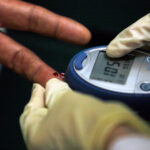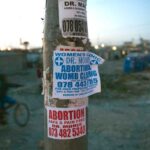A report by Amnesty International reveals the horror of living with albinism in Malawi where this population is believed to bring immeasurable wealth.
Malawians with albinism live in increasing fear of being attacked, abducted and killed for their body parts, a new Amnesty International report reveals.
There has been a spike in “killings of people with albinism, whose body parts are used in ritual practices”, according to the report released today. At least 18 people have been killed since the end of 2014. Four people, including a baby, were killed in April this year.
Amnesty believes the actual number is much higher because many of the ritual killings in rural areas are not reported.
Albinism is a rare genetic condition that results in a lack of melanin, which leads to very pale skin, hair and eyes.
“People with albinism are targeted because of superstitions and myths. For example, there is a belief that people with albinism have gold in their bones,” says Simeon Mawanza, one of the report’s lead investigators.
The Malawi police reported at least 39 cases of people stealing bones out of graves or found in the possession of bones or other body parts taken from corpses. Another 70 crimes committed against this population group have been reported since November 2014.
But the police don’t have adequate training and the skills needed to investigate these crimes, the report finds. “There are fears that some police officers carry the same prejudices as the wider Malawian society and fail to take human rights abuses against people with albinism seriously.”
[WATCH] Victims of superstition: The dangers of living with albinism in Africa
Amnesty criticises the Malawian authorities for “dismally failing” people with albinism, leaving them “at the mercy of criminal gangs who hunt them down for their body parts”.
The organisation calls on the government to take drastic steps to protect people with albinism and to ensure that crimes against them are investigated fully.
The Malawian government told Bhekisisa that it has directed magistrates hearing such cases to impose stiffer sentences, and that “surviving persons with albinism and affected families are provided with psychosocial support”.
Ina Skosana was a health reporter at Bhekisisa.





